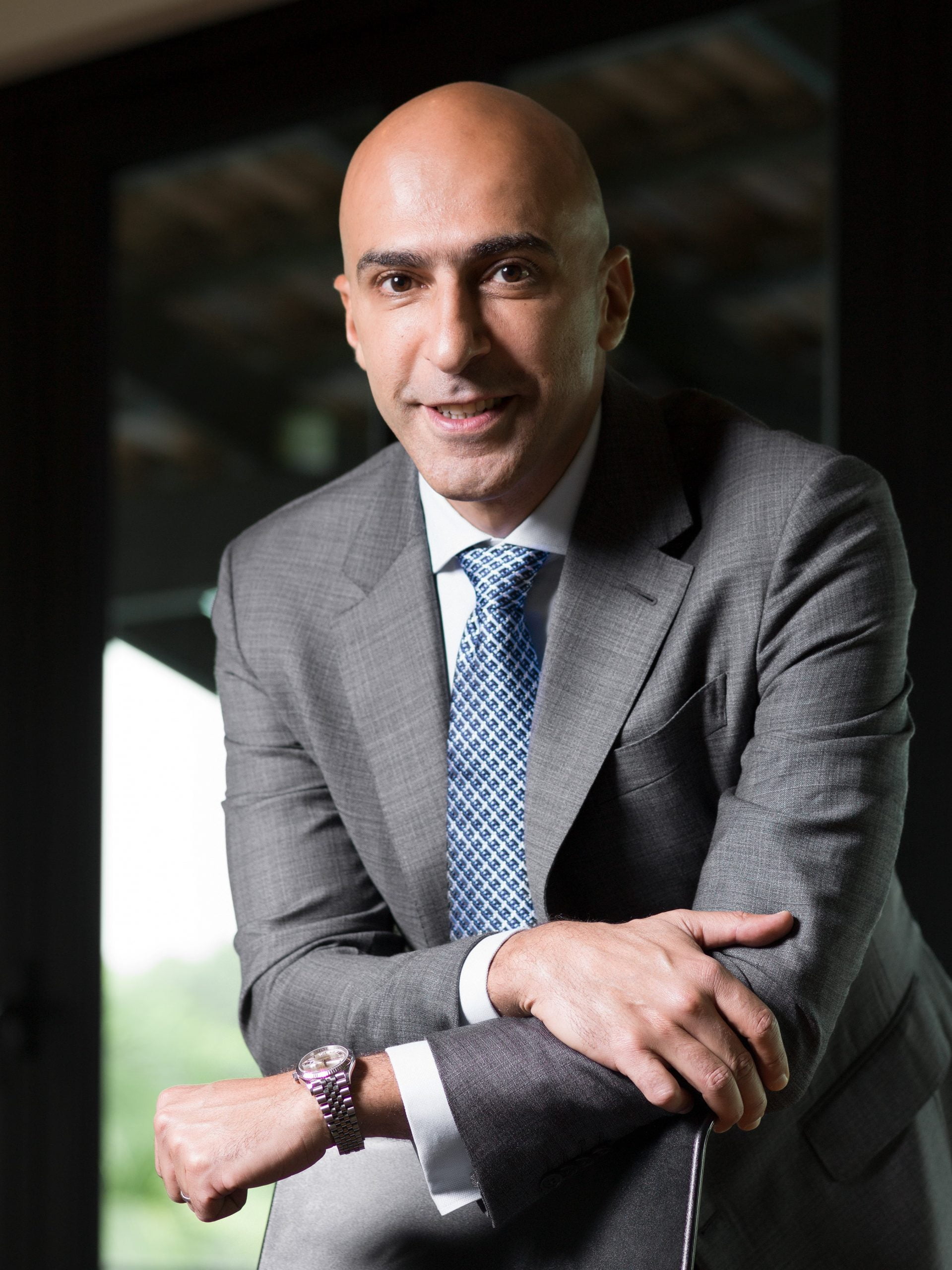Teenagers can be exposed to violence in many different ways. They may witness it in the media, films, or video games. They may see violence in person, between other individuals or groups. And they may experience – or perpetrate – violence themselves.
When a teenager feels angry or enters a conflict, they may think about responding violently. This may be especially likely for teenage boys, for whom norms around masculinity accept or even celebrate violence. However, violence causes multiple types of harm throughout the whole community, from psychological trauma to widespread fear and isolation.
Parents play a huge role in their children’s lives, and, consequently, can play a big role in violence prevention. Positive parenting, through role-modelling, warmth, and responsiveness, nurtures secure attachments where teenagers can learn social and emotional skills from their parents. Engaging in specific conversations about violence – and how to avoid it – is also key.
This blog summarises some of the important research surrounding parenting and violence prevention, offering key tips for parenting teenage boys.
Engaging in Specific Conversations
Parental attitudes and parenting approaches have a profound impact on young people’s mental health, behaviours, and well-being. Research has linked parental warmth, non-judgmental acceptance, and careful listening with positive youth development. The presence of open communication and parent-child conversations is among these valuable practices, and the way that parents and teenagers communicate has important implications for young people.
But it’s not only holding conversations that is important: the content of these conversations also matters. Research shows that, across various topics, engaging in specific conversations helps prevent harmful behaviours and encourages positive ones.
For example, a recent study about adolescent experiences of sex found that specific parent-teen conversations about sexuality had more protective effects than parental warmth more broadly. Another study suggested that sons of parents who discussed emotions with them had better emotional regulation strategies.
Consequently, having specific conversations with teenage boys about preventing violence is likely a key protective factor against experiencing or perpetrating violence. These conversations might involve:
- Speaking about the alternatives to violence. You could discuss the choices that a young person can make when they feel angry or are confronted with aggressive behaviour from others
- Discussing how to respond if they witness violence
- Discussing violence as a social issue and understanding its impact on different parts of the community
Alternatives to Violence
If a young person becomes angry or is threatened by someone, you could suggest they:
- Taking deep breaths to calm down
- Taking some time out
- Expressing their feelings with words
- Listen to music, exercise, or play sports to calm down
- Try to focus on something positive instead
Try to keep the conversation open by asking a young person about the techniques they already use to calm down, and discuss these together.
Understanding Violence
Violence is a complex social issue that has many different forms. Violence can be verbal, physical, psychological, sexual, economic, and relational. These different types of violence are interconnected. Young people at risk of perpetrating or experiencing one kind of violence are also more vulnerable to other types. The overlap between different kinds of violence is so significant that it can be challenging to identify a group of individuals who have only experienced or perpetrated one kind of violence.
Violence affects and harms the whole community. It can occur in various settings, including homes and schools. Violence is often connected to oppression, such as patriarchal violence or racial violence.
Some of the harms caused by violence include:
- Psychological trauma for survivors and perpetrators
- Community fear
- Breakdown of community trust and cohesion
- Intergenerational trauma
Some of the risk factors for being involved in violence include:
- Family instability or conflict
- Socio-economic disadvantage
- Use of substances
- Having peers who behave aggressively or violently
- Exposure to violence in person or in the media
When you’re speaking to a young person about violence, you might want to talk about some of these things. Open discussions about the causes, nature, and consequences of violence can help teenage boys understand the harm it can cause and encourage them to make positive, non-violent choices.
Modelling Positive Behaviours
As well as having specific conversations with teenagers, parental role-modelling also plays a key role in shaping adolescents’ behaviours and discouraging the use of violence.
Violent behaviours are more likely when young people lack the skills to handle social and emotional situations in healthy, constructive ways. When teenagers have difficulty managing their emotions, they’re more likely to respond with violence and other harmful behaviours. Developing emotional regulation skills, then, is an integral part of violence prevention.
Emotional regulation skills can be learnt and developed in various settings, from interactions with peers during adolescence to attentive and responsive early life relationships that facilitate emotional exploration and acceptance. However, research suggests that parental role modelling plays a significant role. For example, when parents have difficulty returning to a stable emotional state after a conflict, their children are more likely to struggle with regulating their own emotions.
This means that it’s essential for parents to manage their own emotional responses to situations and take steps to model healthy behaviours. Some examples of positive role-modelling include:
- Identifying and expressing your own emotions
- Vocalising coping mechanisms, such as taking deep breaths, taking some time out, or re-framing a problem (“I feel stressed, so I’m going to take a walk”)
- Modelling positive self-talk, such as “That didn’t work, but I’ll learn from it for the future”
- Having open discussions about managing emotions, with self-reflection and curiosity
Violence often initiates or escalates during conflicts. Parents should take care to role-model coping skills in heated arguments with their teenage sons and with others. It can help to remember that anger often develops from a feeling of losing control.
If you find yourself in a heated conflict with your son, try to:
- Have a calm and peaceful presence that is strong but not threatening
- Show your willingness to listen, being aware of your body language
- Respect their personal space
- If necessary, explain that you are going to take some time out and come back after half an hour.
- Try using breathing exercises to take the intensity out of the conflict. Breathe in deeply, hold your breath for a few seconds, and breathe out again slowly.
Taking a Stance Against Violence
Children learn a great deal from their parents through observation, discussion, and questioning. While parents’ influence decreases as young people move through adolescence, their views and opinions still have a significant impact on teenagers’ own attitudes.
When it comes to violence prevention, taking a strong stance against aggression and violence is really important. Research has found that among several variables, including parental monitoring and positive parental-child relationship, parental attitudes towards fighting were the strongest predictors of adolescents’ aggression.
Addressing Toxic Masculinity
Social norms around masculinity often encourage or even celebrate violence among men and boys. Toxic masculinity teaches teenage boys that being physically stronger than someone or more capable in a physical fight is a trait of ‘being a man’. Toxic masculinity may also depict walking away from aggression as a sign of weakness.
However, the behaviours that toxic masculinity advances are harmful to all of society and all gender identities. Challenging, confronting, and transforming these norms is crucial in various settings, including the home.
Parents can help to counter toxic masculinity by challenging harmful stereotypes and encouraging empathy, respect, and equality. This might involve:
- Challenging ideas that men shouldn’t express emotions, cry, or show weakness
- Redefining strength as empathy and the acceptance of vulnerability, rather than physical dominance
- Validating emotional expression, including fear and sadness
- Calling out sexist comments or behaviours
- Encouraging mutual respect in relationships
Cultural Considerations in Parenting and Violence Prevention
For parents to have open and direct discussions about topics like violence prevention, confidence is important. Research shows that when parents have more confidence in talking about prevention-related topics, they’re more likely to actually engage in these types of conversations.
This confidence can stem from different sources, including the cultural underpinnings of such conversations. When violence-prevention conversations fit with or reflect the cultural traditions of a family, parents may initiate discussions more readily and effectively. For example, in some cultures, practices of storytelling and intergenerational storytelling may provide a foundation for discussing violence prevention. This means that violence-prevention conversations may look different depending on the cultural and social characteristics of the family.
Spirituality may also play a role in these discussions. When family values, such as non-violence, are connected to or reflected in spiritual or religious beliefs, parents may want to explain this as well.
Preventing Violence Through Parenting Skills Training
Parenting skills play a significant role in violence prevention through open discussions, role-modelling, secure parent-child relationships, and stances against violence. Parenting skills training can support parents in developing these skills, encouraging positive parenting that helps young people avoid violence.
Parenting sessions should be culturally tailored for different communities, taking into account cultural values and traditions, as well as historical considerations and intergenerational trauma.
Training for parents may include:
- Increasing confidence in holding open, specific discussions, including around violence prevention
- Emotional regulation strategies
- Conflict resolution strategies
- Role-modelling skills
- Psychoeducation around violence and trauma
The Wave Clinic: Specialist Mental Health Support for Young People and Families
The Wave Clinic provides residential and outpatient mental health treatment services for children, adolescents, young adults, and their families. We take a whole-person approach to mental health care, centring the role of family and social structures, as well as past experiences, in shaping how we feel and act today.
We offer 14 and 21-day parenting and family intensives to support families who have experienced family trauma or mental health challenges in the family. We combine skills training with talk therapy and experiential therapies, as families establish new ways of being through the creation of memories.
If you’d like to find out more about our programs, you can find our contact details here.
Malek Yassin is the treatment director at The Wave Clinic. Specialising in child and adolescent psychiatry, he has over 19 years of experience in mental health treatment for adolescents, young adults, and families. Malek is a bilingual certified child and adolescent trauma professional with a specialist interest in the treatment of complex and developmental trauma, antisocial personality disorder, conduct disorder and oppositional defiant disorder. Malek is EMDR (EMDRIA), CBT, IRRT, PE, and MBT trained. Currently studying traumatology, he is a fellow of APPCH (U.K.) and a senior accredited member of Addiction Professionals.
More from Malek Yassin











